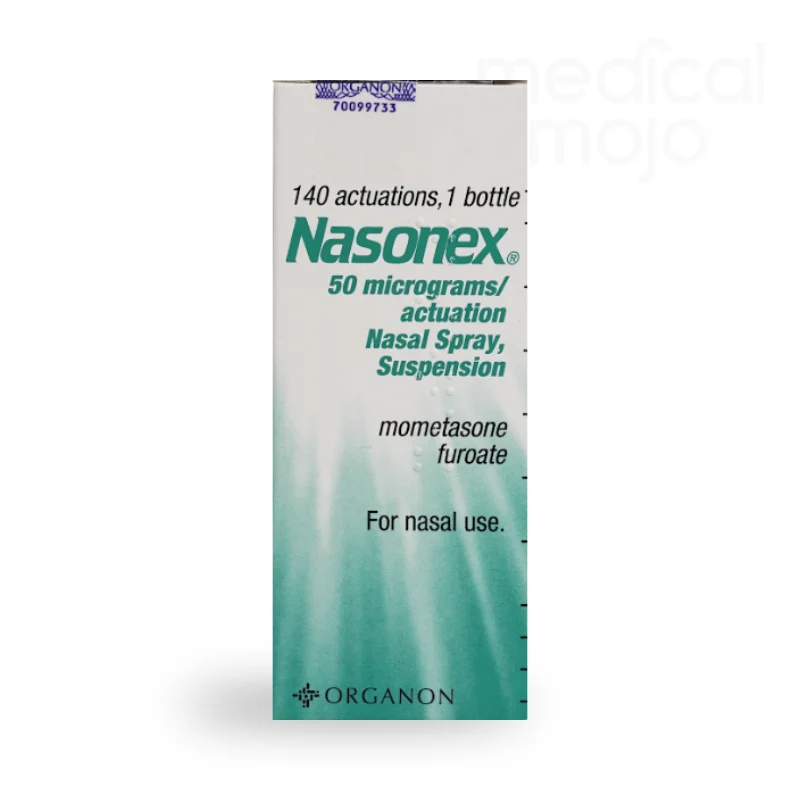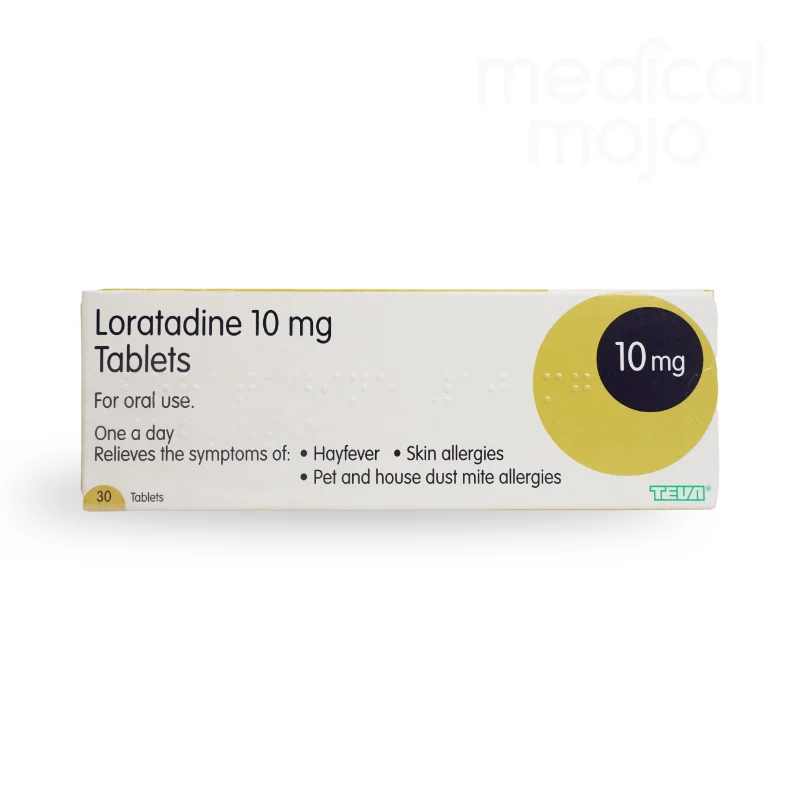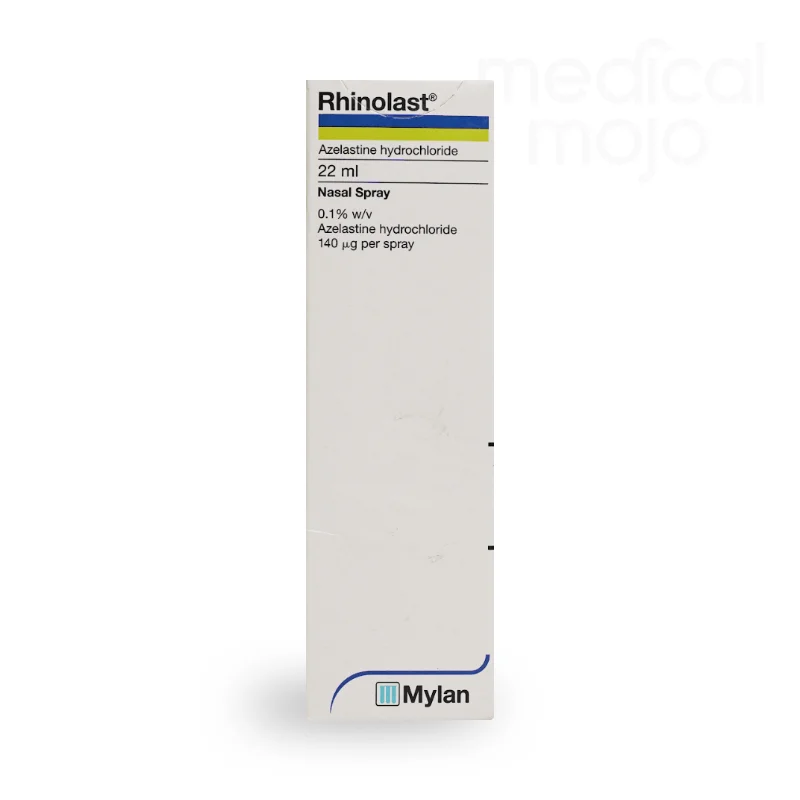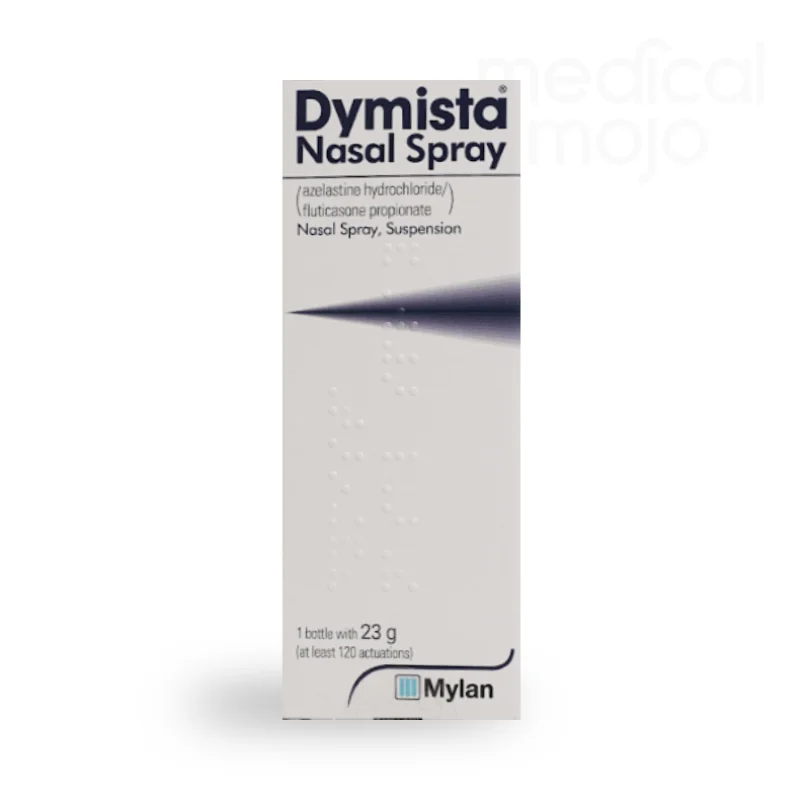What is Nasonex and what is it used for?
Nasonex is a nasal spray that effectively treats and prevents the symptoms of allergic rhinitis, including both seasonal (such as hay fever) and year-round allergies caused by factors like house dust and animals. It is also used to treat nasal polyps, which are growths in the nose. The active ingredient in Nasonex is mometasone furoate, a corticosteroid with anti-inflammatory properties that helps reduce inflammation in the nasal passages, alleviating symptoms like congestion, sneezing, and a runny nose. Nasonex is available by prescription and comes in an 18-gram bottle containing approximately 140 metered doses. It is suitable for adults and children over 3 years of age.
What is allergic rhinitis?
Allergic rhinitis is a condition affecting about 20% of people in the UK, where the immune system overreacts to allergens, such as pollen, dust mites, or pet dander, as if they were harmful infections. This overreaction leads to symptoms like sneezing, congestion, and a runny nose. While the exact cause of this immune response is not fully understood, genetics may play a role, as the condition often runs in families. Though generally not serious, allergic rhinitis can be frustrating and may, in rare cases, lead to complications such as sinusitis or middle-ear infections.
How does Nasonex work?
Nasonex cannot cure allergic rhinitis, but it effectively manages the symptoms. The corticosteroid mometasone furoate in Nasonex works by suppressing the immune system's inflammatory response to allergens, preventing the development of allergy symptoms and helping to alleviate symptoms if they have already started.
What are some alternative treatments for allergic rhinitis?
There are several non-medicinal methods and over-the-counter (OTC) products available to help manage hay fever symptoms. These include:
- Wearing wrap-around sunglasses to protect your eyes from pollen
- Keeping windows closed on days with high pollen counts
- Showering immediately after being outdoors to remove pollen from hair and skin
OTC treatments include:
- Nasal Sprays: Benacort, Pirinase
- Tablets: Cetirizine, Loratadine
- Eye Drops: Available to treat allergic conjunctivitis
These treatments are usually tried before moving on to prescription-only medications like Nasonex.
What warnings should I be aware of when using Nasonex?
Nasonex may not be suitable if:
- You have an injury to your nose
- You have recently had nasal surgery
- You have an untreated infection in your nose
Consult your GP before using Nasonex if:
- You have any infections
- You have a history of tuberculosis
- You are taking other corticosteroid medications
- You have cystic fibrosis
While using Nasonex, inform your GP if:
- You develop a throat or nasal infection
- You use the medication for several months or longer
- You have difficulty fighting infections
- You experience persistent nasal irritation, which may be caused by the inactive ingredient benzalkonium chloride
Always read the packaging and Patient Information Leaflet, and inform your doctor about any other medications you are taking.
How should I use Nasonex?
For adults and children over 12 years old, the usual dose is 2 sprays in each nostril once daily. You may start to notice symptom improvement within 12 hours, but it can take a few days to achieve the full effect.
Steps to use Nasonex:
- Shake the bottle gently and remove the dust cap.
- Gently blow your nose.
- Close one nostril and insert the nozzle into the other nostril.
- Tilt your head slightly forward, keeping the bottle upright.
- Breathe in gently through your nose while pressing down ONCE on the nozzle to release a fine mist.
- Breathe out through your mouth. If needed, repeat the process for the same nostril.
- Repeat steps 3 to 6 for the other nostril.
What ingredients are in Nasonex?
The active ingredient in Nasonex is mometasone furoate (50 micrograms per spray). The nasal spray also contains inactive ingredients such as dispersible cellulose, glycerol, sodium citrate, citric acid monohydrate, polysorbate 80, benzalkonium chloride, and purified water.
What are the possible side effects of Nasonex?
While not everyone experiences side effects, some may occur, including:
- Nosebleeds
- Irritation in the nose or throat
- Headache
- Sneezing
- Nasal ulcers
- Respiratory tract infection
If you are concerned about these side effects or if the product affects you in other ways, stop using it and consult your doctor or pharmacist.











